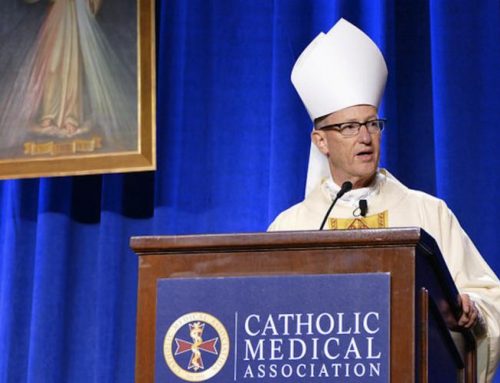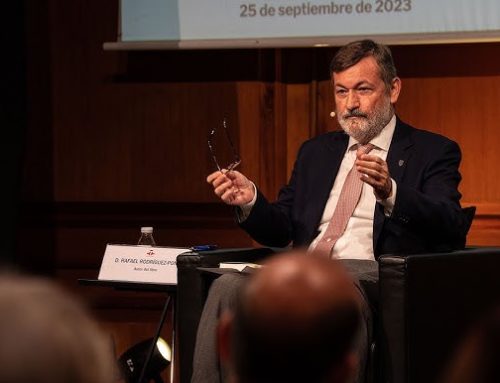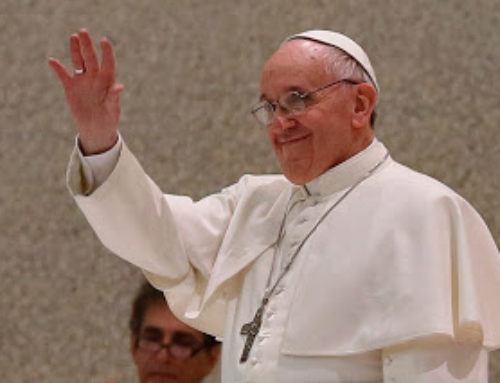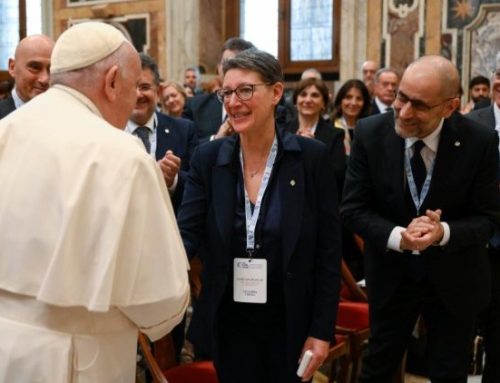12 May 1988
To the sick and elderly and their medical personnel in Sucre
On Thursday, 12 May, the Holy Father went to the Cathedral of Sucre where the elderly and infirm, along with many medical personnel, were waiting to greet him. During this meeting the Pope gave the following discourse:
Beloved Brothers and Sisters,
1. My visit to the cathedral of this friendly city of Sucre gives me great satisfaction, because it affords me the chance to meet the sick, you who are suffering in body and spirit because of your loss of health.
I have particularly desired this meeting to tell you, beloved sick present here, and all those who are afflicted with infirmity throughout the breadth and length of this country of Bolivia, that I am close to all of you who are suffering. I would like my presence to offer you a moment of consolation and I ask God to give you courage and serenity in your suffering.
2. The mystery of suffering makes us shudder. It is not easy to accept pain and death, because it means accepting our frailty in its various dimensions. The mystery becomes even more dense when we enter into the suffering of Christ, the Son of God, in whom every human suffering finds its explanation and transcendent meaning. Jesus, too, suffered pain and death, leading him to exclaim: “My father, if it is possible, let this chalice pass, but not my will but yours be done” (Mt 26:39).
The bishops of the whole world thus reminded us in their message to the sick at the conclusion of the Second Vatican Council: “We have something deeper and more valuable to give you, the only truth capable of answering the mystery of suffering and of bringing you relief without illusion, and that is faith and union with the Man of Sorrow, with Christ the Son of God, nailed to the Cross for our sins and for our salvation” (n. 4).
Furthermore, if we know how to bear suffering in the right way, we can also learn at the same time to discover God, to understand our neighbour’s pain and unite ourselves to Christ who suffers for all. This is to fulfil what St. Paul indicated: “In our own body to do what we can to make up all that has still to be undergone by Christ for the sake of his body, the Church” (Col 1:24).
3. However, there is another equally important dimension capable of humanizing suffering; it is the action that we can perform, alleviating the sufferings of others and thus expressing our fraternal love. In the face of pain, solidarity and love grow.
For this reason, the Church, like the Good Samaritan of the gospel, following the footsteps and teaching of the Master, has always shown particular interest in the sick, the poor and the neglected. In addition to their own concern for the sick, the Apostles entrusted to the deacons the care of the widows and the needy. From earliest times people suffering from illness or poverty have been especially received in the monasteries and churches of Christianity. Long before States became concerned with these citizens, the Church established hospitals for the sick, hospices for the abandoned and other institutions to attend to those who were suffering from any need.
For every Christian, to visit and assist the sick is a work of mercy, because Jesus is present in them: “I was sick and you visited me” (Mt 25:36).
4. Today also the Church continues to offer these services, even if modern society has become more and more responsible for their general organization. Today also, the presence of Christians in the places where people suffer sickness, loneliness and abandonment, is always notable. It is a task that is both Christian and humanitarian.
To continue that vocation of evangelical witness, meritorious religious institutions were born within the Church, whose members consecrate themselves totally and in an exemplary way to the care of the sick. That presence is no less appreciated here in Bolivia, where infant mortality is very high, where the average life expectancy is still very low, where alcoholism and the new scourge of drug addiction are a menace to all social strata. The religious of Bolivia find here a vast field of action and apostolate, in order to put love where there is pain. I express my deep gratitude to all these consecrated persons who devote their lives to the sick, thanking them for the praiseworthy work which they perform with so much dedication and selflessness. Jesus Christ will be their reward.
5. Likewise, I express my deep appreciation and respect to the doctors, nurses, and medical aides for their exemplary vigilance in the exercise of their profession. This is a true vocation, destined to relieve our suffering brethren. Few professions are as worthy of such great esteem as that of the doctor when he or she acts with dedication and an ethical and humanitarian sense. This puts doctors on a level very close to the priesthood, in which their mission is to heal the body and, at the same time, alleviate the spirit.
Therefore I encourage these professional people to be conscious of their most worthy commitment, to be at all times at the service of life and never of death, to be totally honest in the choice of treatments and surgery, not to yield to the temptation of money, nor to abandon their country – which needs them – only for material gain. They should see their patients – even the poorest, who may not even be able to pay for their services – as human persons and children of God.
My beloved sick brothers and sisters: you who are living the Lord’s passion, if you live it with him, you strengthen the Church with the testimony of your faith and the valour of your sacrifice. With your patience, fortitude and joy, you proclaim the mystery of Christ’s redeeming power, and you will meet the crucified Lord in the midst of your sickness and your suffering.
I recommend to God all those who work for the sick in hospitals, nursing homes, sanatoriums, centres of assistance to the dying and in the psychiatric hospital of this city. I would like to repeat to you, doctors, nurses, chaplains and other hospital personnel: yours is a noble vocation. Never forget that it is Christ whom you serve in your suffering brothers and sisters.
To all the sick who are present here and to all who are present at this meeting through radio and television, I give you an affectionate embrace with the love of a brother. I ask you to offer your sufferings for the Church and her pastors, for the unity of Bolivians and the prosperity of your country, and i give you my special Apostolic Blessing.
John Paul II









